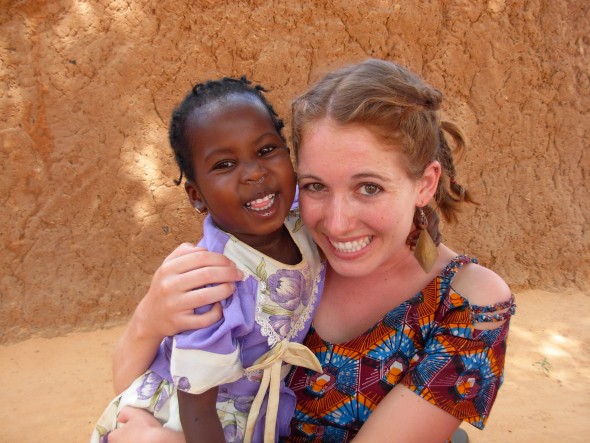When did you know that you wanted to work in food?
In West Africa, 18 million people are malnourished (Save the Children) and 55% of the population lives on less than $1 per day (World Bank). As a Peace Corps Volunteer in Niger, I conducted a three-month needs assessment and identified two challenges: widespread malnutrition and a lack of economic opportunity for women. Moringa is an abundant local superfood that thrives in hot climates, but few people benefit from it. While this "miracle tree" is packed with protein, essential amino acids, 27 vitamins and 46 antioxidants, its rarely eaten and is viewed as a low-value crop. I started Kuli Kuli to change this.
Kuli Kuli sells Moringa Superfood Bars and Organic Moringa Powder in the United States made with moringa imported from West Africa. We support farming cooperatives that teach women to grow, process and incorporate nutrient-rich moringa into their families' diets, reducing malnutrition. We import a portion of the moringa to the US for our bars, creating an international market for moringa and a livelihood for our farmers. Many of the women we work with make five to ten times the average income in their region. We pay a 10% premium for our moringa which our nonprofit partners use to improve nutrition locally. And we just kicked off a new crowdfunding campaign to help reforest Haiti with moringa trees and launch a new product made with Haitian moringa http://igg.me/at/
How did you get your current good food job?
I started the company ?
How did your previous work or life experience prepare you for a good food job?
As one of the first five employees at the solar finance startup Mosaic, I helped raise over $5M and grew the company's contact list from zero to 25,000. For two years, I was the only marketing staff and gained expertise in launching products and in building engaged communities. Previously, I worked at an impact investment firm in India. There I learned how startup social enterprises gain traction and how to approach investors. Both of these startup experiences built upon my own experiences starting two organizations in college that grew to over 80 members. Additionally, I worked on policy at the White House and the United Nations Environment Programme. Finally, I gained a firsthand understanding of the social challenges Kuli Kuli aims to solve as a Peace Corps Volunteer in Niger. That, coupled with my background in start-ups, has given me a strong foundation to create a sustainable and profitable food business.
What was the greatest obstacle you had to overcome in pursuing your Good Food Job dream?
Perhaps one of our biggest mistakes was underestimating how long our first manufacturing run would take. Following our Indiegogo campaign we had over 800 people and Whole Foods NorCal who wanted our Moringa Superfood Bars. We thought it would take us three months to finalize the formulation, get the labels printed and get the final product to our customers and stores. It took six months. One of the delays was caused when the US government shut down and our moringa was stuck in US customs for a month. It would have been funny if it weren't so frustrating. We've since learned to overestimate lead times as opposed to over-promising and under delivering.
Name one positive thing that a former employer taught you that you continue to appreciate?
My former boss taught me to do one-on-one interviews with everyone I manage. That has helped me immensely with Kuli Kuli.
What can you identify as the greatest opportunities in food right now?
Superfoods! The superfoods or "functional foods" market is estimated at $38B, growing at 7% annually. From quinoa to chia to moringa, there are lots of food products that are eaten all over the world but haven't made it to the US yet.
If you could be compensated for your work with something other than money, what would it be?
Meaning. That sounds strange but knowing that you're helping to make the world a better place is the greatest form of compensation there is for me.









